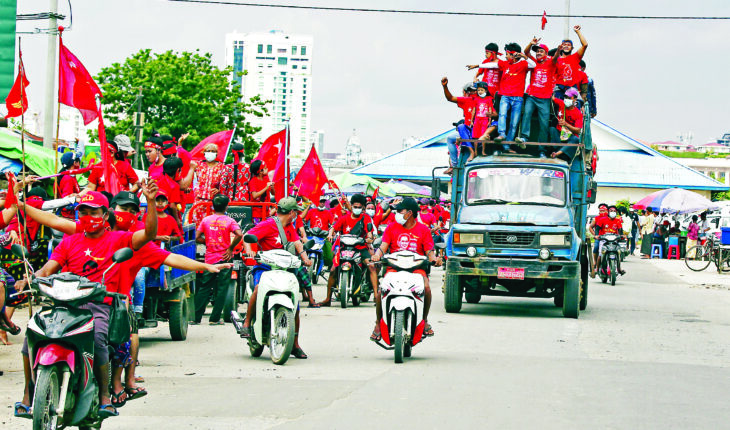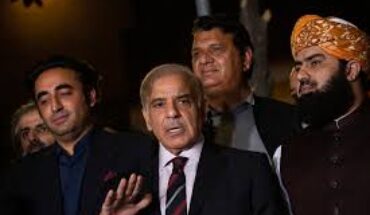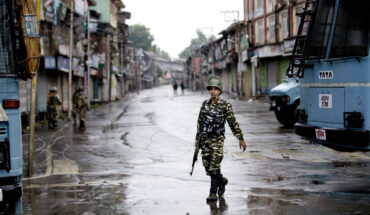Navin Chawla says the coup in Myanmar highlights difficult choices faced by the embattled leader
Myanmar’s army generals overreached themselves by declaring last November’s general election null and void and arresting Nobel Peace Prize laureate Aung San Suu Kyi, whose party, the National League for Democracy (NLD), had swept the 2020 election with an overwhelming majority.
The story of Ms. Suu Kyi’s life, with the many odds and lengthy periods of incarceration she has faced, has been told often. More recently, her act of defending Myanmar against the Rohingya genocide charges triggered massive condemnation from the international community. But though she won the November 2020 election, she is now under detention, yet again. Perhaps her admirers-turned-critics can now begin to understand that her silence on the Rohingya crisis was a difficult choice among her very limited options.
Myanmar’s Constitution was amended in 2008 to ensure that 25% of seats in the country’s Parliament are reserved for the military. The Constitution excluded anyone married to a foreign citizen (or whose children are foreign citizens) from contesting. In 2010, the NLD chose to boycott the election; in 2015, Ms. Suu Kyi joined the electoral process and the party swept the polls. Although she was constitutionally barred from the office of President, in an internationally brokered accommodation with the junta, she accepted the post of State Counsellor and became the virtual Prime Minister.
The November 2020 election to both Houses of Parliament and the State legislatures (excluding seats reserved for the military), saw her party trounce the Union Solidarity and Development Party by a sufficiently large margin. The military-backed opposition alleged that the election was riddled with irregularities.
The international observers for the Myanmar poll included Asian Network for Free Elections (ANFREL), the Carter Center, the European Union and International IDEA, amongst other reputed bodies. There was some criticism of the NLD’s extensive use of state media and the Election Commission’s exclusion of the Rohingya from the voting process. But ultimately, the Carter Center commended the Commission’s efforts, and a coalition of 12 domestic observers declared the election results credible while also pointing out the weaknesses in the electoral legal framework post the 2008 Constitution.
On February 1 this year, the Tatmadaw overturned the election in its entirety, thereby bringing a decade’s worth of democracy to an abrupt end. A one-year Emergency has been declared and fresh elections are promised. In a pre-dawn raid on Ms. Suu Kyi’s house, the army claimed that it found imported walkie-talkie sets and invoked infringement of customs regulations. The police arrested her.
Hundreds of thousands of protesters have taken to the streets in Yangon, Mandalay and other cities since the coup. While the NLD called for a nationwide strike, the army clamped down on social media networks and ordered a curfew. In turn, thousands began to bang pots and pans as an act of protest. While the protests are still largely peaceful, the press has reported police firing and a few deaths. In an unprecedented move, the generals have detained Election Commission officials, with the purported aim of having the poll body admit to electoral fraud.
The overturning of the election has been widely condemned by the international community. U.S. President Joe Biden was among the first to denounce the coup. He effectively froze U.S. funding and called for the release of political leaders and party members who had been detained. The United Nations passed a resolution calling for Ms. Suu Kyi’s immediate release.
Until recently, Ms. Suu Kyi was being attacked for her silence on the plight of the Rohingya. But by arresting her yet again, the generals may have succeeded in partially restoring the halo that had slipped. The world may once again be reminded that she was the daughter of the country’s hero General Aung San, and that she has already spent a large part of her life deprived of freedom. What are the options for her now? In 2015, she had reached an understanding with the military junta that enabled over five years of a civilian government. As in a game of snakes and ladders, she has now slipped back to the starting point.
The charges against Ms. Suu Kyi may make little sense, but it seems likely that she will be sentenced by a court of law. A question that may have arisen in her mind is that if detention, again, was to be her fate, even after winning an internationally accepted election, would it have been preferable to stand up to the army and regain the world’s respect which came after a lifetime’s sacrifice?The author is a former Chief Election Commissioner of India. Views expressed are his own
The story of Ms. Suu Kyi’s life, with the many odds and lengthy periods of incarceration she has faced, has been told often. More recently, her act of defending Myanmar against the Rohingya genocide charges triggered massive condemnation from the international community. But though she won the November 2020 election, she is now under detention, yet again. Perhaps her admirers-turned-critics can now begin to understand that her silence on the Rohingya crisis was a difficult choice among her very limited options.
Myanmar’s Constitution was amended in 2008 to ensure that 25% of seats in the country’s Parliament are reserved for the military. The Constitution excluded anyone married to a foreign citizen (or whose children are foreign citizens) from contesting. In 2010, the NLD chose to boycott the election; in 2015, Ms. Suu Kyi joined the electoral process and the party swept the polls. Although she was constitutionally barred from the office of President, in an internationally brokered accommodation with the junta, she accepted the post of State Counsellor and became the virtual Prime Minister.
The November 2020 election to both Houses of Parliament and the State legislatures (excluding seats reserved for the military), saw her party trounce the Union Solidarity and Development Party by a sufficiently large margin. The military-backed opposition alleged that the election was riddled with irregularities.
The international observers for the Myanmar poll included Asian Network for Free Elections (ANFREL), the Carter Center, the European Union and International IDEA, amongst other reputed bodies. There was some criticism of the NLD’s extensive use of state media and the Election Commission’s exclusion of the Rohingya from the voting process. But ultimately, the Carter Center commended the Commission’s efforts, and a coalition of 12 domestic observers declared the election results credible while also pointing out the weaknesses in the electoral legal framework post the 2008 Constitution.
On February 1 this year, the Tatmadaw overturned the election in its entirety, thereby bringing a decade’s worth of democracy to an abrupt end. A one-year Emergency has been declared and fresh elections are promised. In a pre-dawn raid on Ms. Suu Kyi’s house, the army claimed that it found imported walkie-talkie sets and invoked infringement of customs regulations. The police arrested her.
Hundreds of thousands of protesters have taken to the streets in Yangon, Mandalay and other cities since the coup. While the NLD called for a nationwide strike, the army clamped down on social media networks and ordered a curfew. In turn, thousands began to bang pots and pans as an act of protest. While the protests are still largely peaceful, the press has reported police firing and a few deaths. In an unprecedented move, the generals have detained Election Commission officials, with the purported aim of having the poll body admit to electoral fraud.
The overturning of the election has been widely condemned by the international community. U.S. President Joe Biden was among the first to denounce the coup. He effectively froze U.S. funding and called for the release of political leaders and party members who had been detained. The United Nations passed a resolution calling for Ms. Suu Kyi’s immediate release.
Until recently, Ms. Suu Kyi was being attacked for her silence on the plight of the Rohingya. But by arresting her yet again, the generals may have succeeded in partially restoring the halo that had slipped. The world may once again be reminded that she was the daughter of the country’s hero General Aung San, and that she has already spent a large part of her life deprived of freedom. What are the options for her now? In 2015, she had reached an understanding with the military junta that enabled over five years of a civilian government. As in a game of snakes and ladders, she has now slipped back to the starting point.
The charges against Ms. Suu Kyi may make little sense, but it seems likely that she will be sentenced by a court of law. A question that may have arisen in her mind is that if detention, again, was to be her fate, even after winning an internationally accepted election, would it have been preferable to stand up to the army and regain the world’s respect which came after a lifetime’s sacrifice?The author is a former Chief Election Commissioner of India. Views expressed are his own






